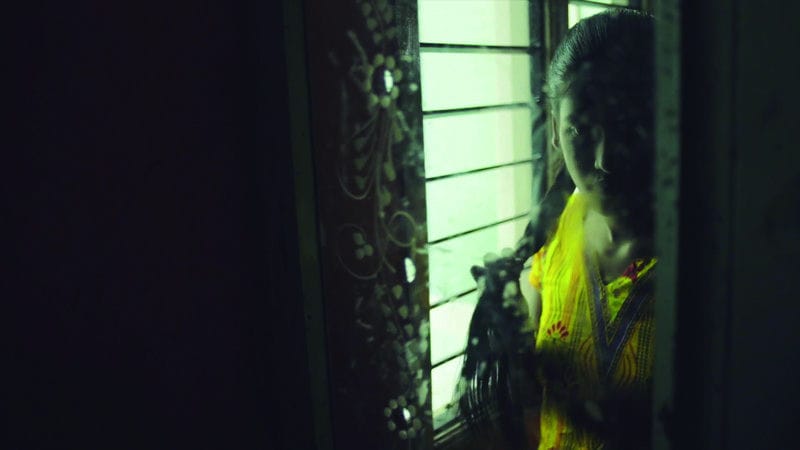Film Info
Film Year: 2019
Film Duration: 90 min
Country: Germany
Language: Tamil
Director
Natalia Preston
Film Category
Synopsis
„Love is a pill, and marriage is an injection. A pill can be flushed out but the effects of an injection can affect us really badly.“ (Revathi at Paadhai, June 2017) If love is a pill, and marriage an injection with major side effects, then just what is the right prescription for a girl’s quest for self determination in today‘s India? Commitment, rules and duty or love, freedom and self determination – is it really as simple a choice? For a group of young women living in a shelter for disadvantaged girls in India the answer proves anything but easy. Set against the southern metropole of Chennai the film intimately observies and explores the options and perspectives of a group of young women at „Paadhai“. Paadhai is a home that offers shelter, learning and self-empowerment to girls who are from poor and broken families or orphaned. The film’s narrative unfolds through a series of storylines as we watch the characters share their personal stories, speaking passionately about tough challenges and anticipation, love, heartbreak and marriage as well as fear, triumph and hope. Their situations are marked by the pressures of real life, societal norms and strong family values, but are highlighted by the girls’ insights and lightened up by their often witty understanding of their circumstances. There is Amulpriya, age 20, the talented, charismatic and impulsive young woman, driven by hunger for knowledge, life and freedom who cannot seem to escape impeding marriage to a man picked by her disillusioned mother. As we experience Amulpriya struggle to challenge the established order, we wonder if she can break the cycle. We watch young Malini, age 12, who was brought to the girls’ home alongside her little sister by the mother herself. Despite all the encouraging efforts of her new environment she cannot help but longing to go back to her underprivileged home. We see Rhada, 32, a former girl at Paadhai, who faces pressures from her in-laws to have a second child, while she herself would want to go after a professional career. The home‘s director Sunitha is present thorughout and supportive in the girls‘ lives. But she is also aware of the constraints facing them when they run counter to India‘s core traditions and values in order to achieve the future she so envisages for them – and which even she herself cannot entirely separate from. The protagonists‘ courageous determination to follow the calling of their dreams and their personal aspirations may serve as an indicator of an unstoppable attempt to introduce a profound mindshift within Indian society. Observing the characters intimately, the film depicts the interdependencies of the social settings and the multi- layered realities without commentary or interviews. Instead the film focuses entirely on the complex authentic – at times intense – social interactions of the protagonists, capturing the revealing dynamics of their various encounters both inside and outside Paadhai. The final scene evoques a somewhat disquieting question: How sustainably can the lessons learnt during their time at Paadhai impact on the girls‘ futures and a life outside its protective structures?


